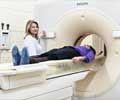Q: Whom should a patient consult for ovarian cancer?
A: The patient should first consult their obstetrician / gynecologist if she is worried about ovarian cancer. The doctor might refer the patient to a gynecologic oncologist who is an obstetrician/gynecologist who is specially trained in treating cancers of the female reproductive system.
Q: Can a woman with a previous breast cancer develop ovarian cancer?
A: Yes, there is a possibility that a woman with a previous breast cancer can develop ovarian cancer. This is because the risk factors for breast cancer and ovarian cancer are similar. This risk is greatest in women with a family history of breast cancer.
Q: Why is ovarian cancer usually diagnosed late?
A: The symptoms of ovarian cancer are non-specific and can be caused by other conditions like irritable bowel disease, fibroids, inflammatory bowel disorder, urinary infections, pelvic inflammatory disease and cancers of other organs. Hence, by the time the symptoms are taken seriously and investigated, the cancer would have spread.
Q: What are the 5 year survival rates for ovarian cancer?
A: 5 year survival rate denotes the percentage of patients alive at 5 years after being diagnosed with a disease. The overall 5 year survival rate for all types of ovarian cancer is 45%, for stage -1 ovarian cancer the 5 year survival rate is 92 %, but only 15% of cancers are detected at this stage. Hence, the sooner the cancer is detected, the better the prognosis.
Q: My CA-125 is elevated, do I have ovarian cancer?
A: It is difficult to interpret elevated CA 125 without additional information or tests. In a symptomatic patient, elevated CA 125 and presence of pelvic mass on imaging studies point towards a high probability of ovarian cancer. On the other hand, isolated CA-125 elevation is also seen in younger women with irritable bowel disease, appendicitis, liver disease, gastrointestinal disease, pregnancy, diverticulitis or pancreatitis.























